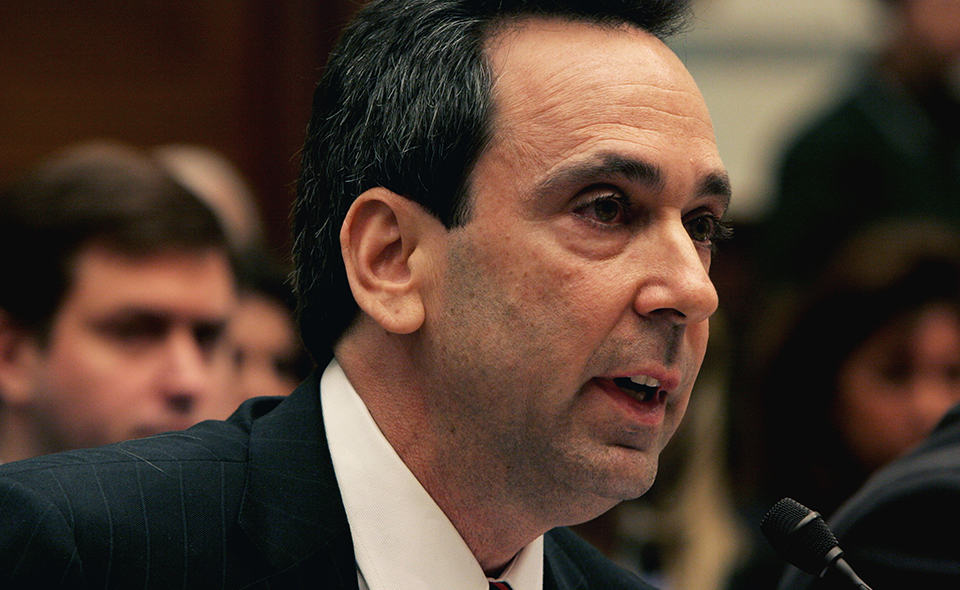We speak with Brett Rivkind, one of the most experienced maritime lawyers in the US, on the finer points of litigating personal injury cases that take place on a cruise ship and what victims should expect.
What are the most common kinds of accidents that occur on a cruise ship?
I would say the most common accident on a cruise is a slip and fall accident. There are a lot of slip and fall hazards. For example, on the pool deck, there is water and spillage of suntan lotions, drinks and many and other substances. In a hotel such as the Marriott where you might see concrete surfaces around the pool area to make it less slippery, the cruise ships tend to use surfaces that get unreasonably slippery when wet or foreign substances get on the deck.
Also, in the casinos and in other areas where they serve food and drinks, there is a lot of heavy traffic and often spillage of liquids or food onto the floor. Cruise lines tend to use surfaces that are designed for appearance, such as nice shiny marble. Therefore, slip and fall hazards are often encountered by a cruise ship passenger, resulting in a large number of slip and fall accidents on cruise ships.
What potential damages are available for an injured party in this situation?
If a cruise ship passenger does suffer personal injury during a cruise and a negligence case is brought against the cruise line, the typical damages will include what is called economic damages such as lost wages, medical bills and other expenses. There are also non-economic damages, which refers to damages for the human elements associated with an injury, which include pain, suffering, disability, disfigurement, inconvenience, mental anguish and inability to lead a normal life.
In what circumstances might the cruise company itself be considered liable for the injury in question?
A cruise ship is liable for an injury only if they are negligent. Negligence is the failure to exercise reasonable care for the safety of the passenger and will depend on the facts of each specific case. A passenger must prove the cruise line did something it should not have done or failed to do something it should have done. So, for example in a slip and fall case, if the cruise line knew or should have known of the hazard but failed to act in a timely manner to eliminate or mitigate the hazard, which resulted in the injury, the cruise line would be responsible.
What constitutes reasonable care under the circumstances will vary from case to case and the type of case. I have handled just about every conceivable type of injury case on a cruise ship, having tried cruise ship cases since 1983. Each fact pattern has to be carefully analysed in order to properly present the evidence to establish liability on the part of the cruise line.
What restrictions and potential obstacles exist when litigating against a cruise line?
There are many obstacles and restrictions to consider in a case involving a cruise ship passenger filing a negligence action against the cruise ship company. The law is federal maritime law, and there are unique aspects of the federal maritime law that must be known by the lawyer which differ from many state laws.
I would say one of the biggest obstacles is making sure that you hire the correct attorney who is experienced in maritime law and who knows the intricacies and specific laws that govern the cruise ship passenger case. In addition to the knowledge of the maritime laws that govern, an experienced cruise ship lawyer will also know what evidence the cruise ship company has that might be obtainable to help establish the case against the cruise line. Having handled many maritime cruise ship cases since 1983, including five years on the defence side representing cruise ship companies before deciding I only wanted to help injured people, I have vast knowledge of the different types of procedures and evidence a cruise ship company has that needs to be obtained in a case to help establish the negligence of the company and achieve success on behalf of the injured passenger.
One of the biggest obstacles is making sure that you hire the correct attorney who is experienced in maritime law and who knows the intricacies and specific laws that govern the cruise ship passenger case.
Another very big restriction that has to be known is the existence of very special deadlines that apply in a cruise ship passenger case that most lawyers who do not handle maritime cases do not know about. For example, on the passenger ticket for the cruise – which is considered a contract under the law – there are important provisions that must be known because they are enforceable. One of them is a time deadline to give notice to the cruise line of the intent to assert a claim against the cruise line for negligence. The most important deadline is the statute of limitation deadline, which is one year to file the lawsuit from the date of the injury. If you fail to file the lawsuit within that one-year period of time, you forever lose your right to file a lawsuit against the cruise ship company for your injury.
These are just a couple of examples. Again, a maritime lawyer will know how to navigate around, above, or directly through these obstacles and restrictions.
For a prospective client who is injured during a cruise, what first steps would you advise taking?
If a cruise ship passenger is injured during a cruise, make sure to report it. Make sure the cruise line is aware of the accident. Take pictures. Get the names and contact information of any witnesses. Do not be pressured into filling out a statement about the accident if you do not feel that you are capable of adequately completing the accident report because you just suffered an accident. You should insist on waiting. It may also be appropriate to say “I want to take the form to my cabin and carefully prepare it so it is accurate”.
If you have a cell phone that works from the cruise ship, and you are in doubt, you can reach out to an attorney. Our firm often receives text messages, emails and calls directly from the cruise ship from passengers who have suffered accidents asking questions how to handle the matter. Keep in mind that the cruise ship’s primary concern should be to rectify any hazards and to treat your medical problems properly, not to help them defend any potential lawsuit you may file later.
You do not have to be interrogated or fill out a lot of details. You do not want to leave out key details, such as the fact that you slipped and fell on a slippery substance on the deck. But for the purposes of the initial encounter on the cruise ship following an accident, there is no requirement to give them detailed information about your accident. You simply need to report that you had an accident, and if you are injured you should seek medical treatment and give a brief description of what happened and your injuries.
Oftentimes, the cruise ship employees, including the doctors are more interested in interrogating you to hopefully get you to say something that could be used against you later when you file a lawsuit. I always suggest that you not complete anything unless they guarantee you the ability to make a photocopy before you give it to them. Sometimes it may be appropriate to simply refuse to give a statement, although sometimes it can be used against you later in a lawsuit because it is trying to suggest you were hiding something.
If a cruise ship passenger is injured during a cruise, make sure to report it. Make sure the cruise line is aware of the accident. Take pictures. Get the names and contact information of any witnesses.
Cruise lines will often try to suggest that alcohol is the reason for your accident, so be careful of that. However, do not lie about drink consumption, because they do have records of the amount of drinks purchased on the cruise ship even though they are not able to accurately know if you actually consumed what was purchased.
Again, it is hard to give hard and fast rules other than to say take pictures, gather as much evidence as you can, and understand that no matter how nice the cruise ship employees are being to you after your accident, their job is to gather information to help the cruise line defend any potential future lawsuit.
Why is it vital to retain an attorney in the aftermath of an injury on a cruise?
It is vital to get a maritime lawyer involved because of the very short statute of limitations and notice deadlines, and the fact that material evidence can disappear, including surveillance video that may have captured your accident or otherwise capture important evidence that will help establish liability of the cruise line. We immediately send out our representation letter so the cruise line knows you have an experienced maritime lawyer representing you, and then we request any records from the ship that we are entitled to receive. We also request the surveillance video showing your accident. When the cruise line knows our firm is involved, most of the time they attempt to amicably resolve the case with us because they know about our experience and success rates against the cruise lines.
What specific skills and experience should be looked for in the ideal attorney?
The ideal attorney should not be the first attorney that pops up on a Google search, especially in sponsored ads that attorneys pay for. The ideal attorney should be experienced in maritime law, as well as somebody that you can trust and that you feel comfortable communicating with. I always suggest you speak to your attorney that you are considering hiring and get a feel for his command of the subject matter, and how you feel you will get along with that attorney in the process involved, which sometimes will take a long time.
I am an AV rated firm by Martindale Hubbell, I have spoken in the United States Congress as an invited Maritime expert to address cruise ship safety laws, and I have been exclusively a Maritime lawyer since 1983. I always welcome a potential client to set up a zoom, Skype or face time meeting with me so they can meet me face-to-face and not only read about who I am, but see who I am and get a good feeling of confidence in hiring me to represent them in a very important matter.
[ymal]
Often, people simply hire a lawyer who was on the top of the first page of Google, and that is a big mistake. Not only may you not relate to the attorney during the process, but the attorney may also not be the one who handles your case.
Can you tell us anything about your own experiences in this area of law?
I have already touched upon my experience a little bit. But I started as a maritime lawyer with a large defence firm in 1983 representing the cruise lines. During my five years there I gained vast experience in handling every type of maritime personal injury and wrongful death case. However, my heart was not with being a defence lawyer. After five years with the defence firm, I decided I wanted to be a plaintiff's attorney representing injured people and family members who lost loved ones due to the negligence of the cruise ship company.
I have never looked back, and I have helped thousands of injured individuals on cruise ships. I have handled many high-profile cases, some of which have become the subject of a book, some of movies, and others have resulted in very important case decisions that have opened the doors to holding cruise ship companies accountable. The congressional hearings I testified about eventually led to the passage of legislation to make cruise ships safer for passengers. I am the past president of the Florida Bar Admiralty Committee. I have written articles and lectured on maritime law, including being selected as a speaker at a judicial college where I was a speaker addressing judges about maritime law.
Brett Rivkind, Founding Partner
Rivkind Margulies & Rivkind P.A.
169 E Flagler St, Suite 1422, Miami, FL 33130, USA
Tel: +1 305=374-0565
Brett Rivkind is a renowned maritime personal injury and wrongful death attorney. Having spent 40 years handling maritime law cases, with experience of both the defence and plaintiff side, he has dedicated himself to helping the victims of accidents and crimes. Many of his cases have been high-profile, representing thousands of individuals hundreds of victims’ families following disasters at sea. He frequently lectures on maritime topics in the legal sector and higher education and has made numerous media appearances, including on the Larry King Live show three times. He has also served as President of the Florida Bar Admiralty Committee.





















